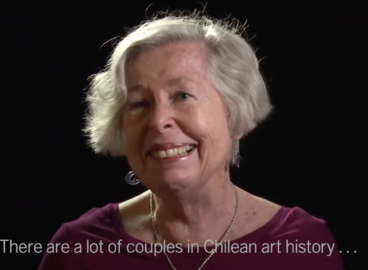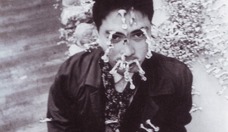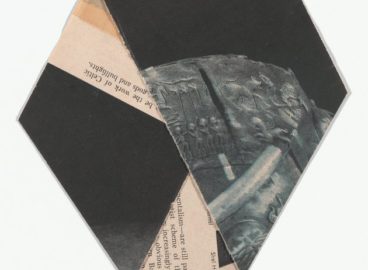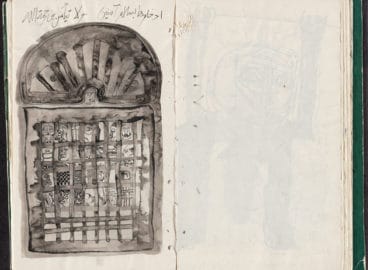When in 1971 Jarosław Kozłowski sent a manifesto of NET to over 350 addresses of artists and critics around the world, his intention was to create an open network for the communication of art ideas. Authored by him with Andrzej Kostołowski, the manifesto called for the exchange of “concepts, propositions, projects and other forms of articulation” without any central governance or coordination—a strictly anti-institutional, and a highly radical idea at the time, in the thoroughly controlled society of the People’s Republic of Poland. In fact, after initially producing a few addenda to the first mailing list and sending it to an even wider circle, Kozłowski stopped being able to control the network altogether.
The artist presented the materials sent to him via NET, first in his apartment—at the gathering that was shut down by security police, with grim consequences for the attendants—and then, in the gallery Akumulatory 2 that he ran in Poznań from 1972 to 1989. NET allowed for a relatively unconstrained exchange of information and art ephemera at the time of limited mobility. As a result, Kozłowski received publications from around the world: Art & Language journal and Schmuck from England, Art and Project Bulletin from Holland, Avalanche from the US, or FILE from Canada, to name just a few. For many years, he corresponded with artists based in five continents (Mieko Shiomi and Yutaka Matsusava in Japan; Emmett Williams and Richard Long in the US; Ben Vautier, Hanne Darboven, Endre Tot and Petr Stembera in Europe; Peter Kennedy and Elwyn Lynn in Australia; Angelo de Aquino and Felipe Ehrenberg in Latin America, among many others) and the acquaintances often led to exhibitions in the gallery Akumulatory 2. For example, his letter exchange with George Maciunas inspired the first Fluxus event organized in Poland: the four-day long “Fluxus Festival” where local artists performed known Fluxus works, in 1977.
A prolific artist working with artists’ books, drawing, performance and later also installation art and painting, Kozłowski himself was not allowed to travel abroad as a result of his “anti-state” activity (as the security police understood his worldwide engagement), but he still exhibited in Poland and internationally. Similarly, Kozłowski was prohibited from teaching at the Poznań School of Fine Arts, and delegated to library work, only to be elected Dean of the school on the wave of changes introduced by Solidarity, in 1981. Since then, he has taught generations of art students in Poland and abroad. Today, Kozłowski is considered Poland’s most influential conceptual artist, although his practice goes far beyond orthodox conceptualism.
In this interview, conducted when Jarosław Kozłowski visited MoMA to meet with C-MAP Central and Eastern Europe, the artist speaks about the past challenges of communicating across the Iron Curtain, his continuing fascination with language as an art medium as well as what he sees as the danger of a solely political reading of art.
Chapter 1: “Shared Language”
In the first part of the conversation, the artist discuss his interest in the phenomenon of language as a tool to perceive the world; the interest that gave birth to many of the artist’s books that Kozłowski has created since the 1970s.
Chapter 2: “Art Communication in East and West”
Kozłowski explains how his communication with artists from the other side of the Iron Curtain, e.g. Latin America or Great Britain, depended on having an understanding of the same philosophical language, regardless of not sharing the political beliefs that often came with it.
Chapter 3: “Against Eastern Europe”
The artist speaks about his past reservations towards the differentiation between Western and Eastern Europe, and how his opinion changed after the political transformation of 1989. Kozłowski also explains his understanding of artistic creation versus art production; the perspective he shared with many artists from the West who exhibited at the gallery Akumulatory 2.
Chapter 4: “Listening in Teaching”
A long-time professor, Kozłowski shares his pedagogical approaches to the difficulties of teaching in a postcolonial context, on the example of his experience in Zambia.
Chapter 5: “Escape from Political Framework”
Rejecting the pressure to interpret every artistic act a political statement, in fear that it can be used as propaganda, Kozłowski advocates for some political autonomy of artistic creation. To prove his point, the artist tells the story of the fluctuating political meanings of his work “Green Wall Out of Any Political Context.”
Chapter 6: “Escaping Pleasure”
Responding to the question about his decision to stop painting as a mean of avoiding pleasure, Kozłowski explains his long-term attempt to escape straight definitions for his art.



